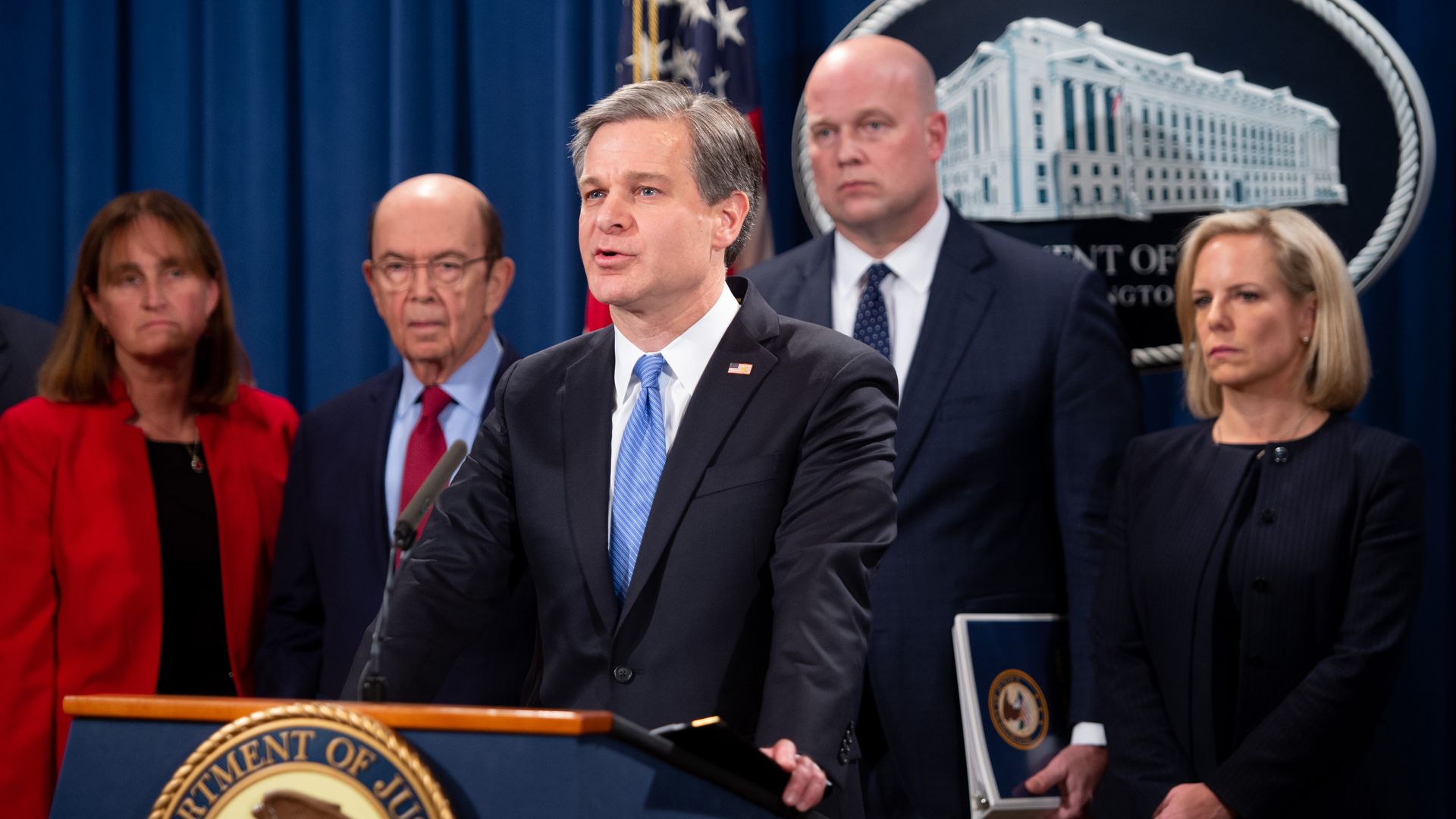Jan 29, 2019 - Technology
Expert VoicesCharges against Huawei escalate tensions in U.S.–China trade war
Add Axios as your preferred source to
see more of our stories on Google.

FBI Director Christopher Wray announces charges against Huawei and affiliates at the Department of Justice on Jan. 28, 2019. Photo: Saul Loeb/AFP via Getty Images
